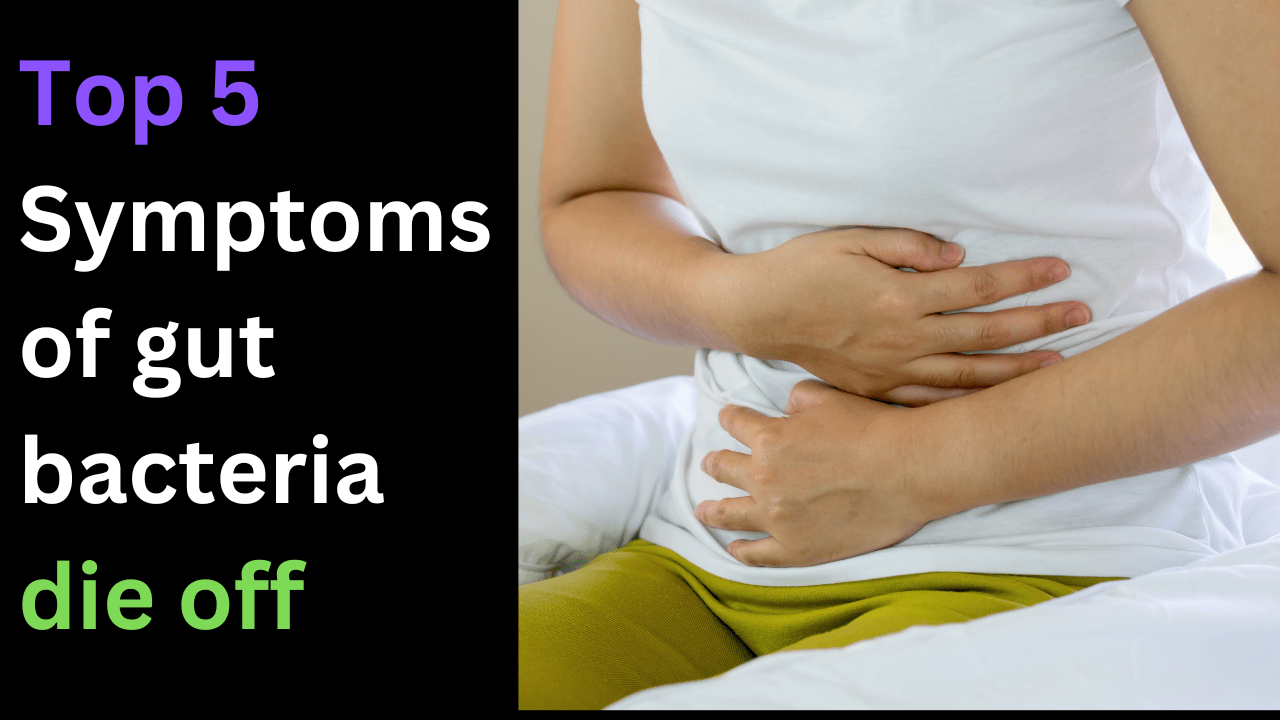Gut bacteria die-off is often referred to as a “Herxheimer reaction” or “die-off reaction.” It can occur when harmful bacteria, yeast, or pathogens are rapidly killed off in the gut.
This process releases toxins into the body, leading to various symptoms as the body works to detoxify. Here are the common symptoms:
Digestive Symptoms
- Bloating: Increased gas production as the microbiome adjusts.
- Diarrhea: A result of the gut expelling harmful bacteria and toxins.
- Constipation: A slower gut motility as the microbiome balances itself.
- Abdominal cramping: Inflammation or sensitivity in the gut.
- Nausea: Due to toxin release and changes in the gut environment.
Systemic Symptoms
- Fatigue: As the body expends energy to process and remove toxins.
- Brain fog: Difficulty concentrating or mental cloudiness due to toxin overload.
- Headaches: Resulting from inflammation and toxin processing.
- Muscle and joint pain: Inflammatory responses from the immune system.
- Fever or chills: A mild, transient immune response.
Skin Reactions
- Rashes: An inflammatory response as toxins are expelled through the skin.
- Acne or breakouts: Linked to changes in the microbiome and detoxification.
Mood Changes
- Irritability: Shifts in gut health can affect mood due to the gut-brain axis.
- Anxiety or depression: Temporary fluctuations in neurotransmitter production.
Other Symptoms
- Body aches: Toxin buildup can trigger inflammatory responses.
- Increased mucus production: As the body attempts to expel toxins.
11 possible causes of gut bacteria Die Off
Gut bacteria, which play a crucial role in digestion, immunity, and overall health, can die off for various reasons. Some common factors that can cause a decline or imbalance in gut bacteria includes
Antibiotics
Antibiotics are designed to kill harmful bacteria causing infections, but they can also kill beneficial gut bacteria. This disruption lead to an imbalance in the microbiota (symbiosis). Some types of bacteria will die off. Others become overgrown.
Dietary Changes
A sudden shift in diet can alter the composition of gut bacteria. This shift includes reducing fiber intake or eating a highly processed, low-fiber diet. The bacteria that thrive on fiber not have enough food, causing them to die off.
Diets high in sugar and fat encourage the growth of harmful bacteria, leading to the depletion of beneficial strains.
Stress
Chronic stress can affect gut bacteria in multiple ways. It changes the gut’s environment. This includes altering its pH and immune system. Such changes can lead to the death of some beneficial bacteria.
Infections
Certain infections, like gastrointestinal diseases (e.g., food poisoning, diarrhea), can kill gut bacteria or disturb their normal balance. Pathogenic microbes can take over, disrupting the gut ecosystem.
Aging
As people age, their gut microbiota tends to become less diverse. Some beneficial bacteria naturally die off with age. The gut environment changes. This sometimes leads to an increased number of harmful bacteria.
Environmental Toxins
Exposure to pollutants or chemicals, like pesticides, antibiotics in food, or certain medications, can damage gut bacteria. These toxins can kill or alter the balance of beneficial microbes.
Imbalanced Immune System
An immune system can become compromised due to an autoimmune disease, immunosuppressive drugs, or certain chronic conditions. This disruption can affect the balance of gut bacteria. This might lead to beneficial bacteria being killed off by an overactive immune response.
Medical Conditions
Conditions like inflammatory bowel disease (IBD), Crohn’s disease, and irritable bowel syndrome (IBS) can alter the gut microbiota. This alteration leads to the death of beneficial bacteria.
Poor Sleep Patterns
Lack of adequate sleep has been shown to affect gut health. Disrupted sleep patterns can influence the gut microbiome, leading to an imbalance that may cause beneficial bacteria to die off.
Overuse of Antacids
Antacids lower stomach acid, which is important for controlling the growth of harmful bacteria in the stomach. Overuse can lead to a shift in the balance of bacteria, allowing some to die off, while others flourish inappropriately.
Hormonal Changes
Hormonal fluctuations, like those during pregnancy or menopause, can affect gut bacteria. These changes can cause shifts in the composition of the microbiome, sometimes leading to the death of certain beneficial bacteria.
Maintaining a healthy diet can help preserve a balanced gut microbiome. Reducing stress also contributes to gut health. Avoiding unnecessary medications prevents the harmful die-off of important gut bacteria.
Duration and Management
- Duration: Symptoms typically last a few days to a couple of weeks. The duration depends on the extent of bacterial die-off. It also relates to the body’s detoxification capacity.
- Management Tips:
- Stay hydrated to help flush out toxins.
- Support detoxification with mild activities, rest, or supplements like activated charcoal (under medical guidance).
- Focus on a nutrient-rich, anti-inflammatory diet to support gut healing.
- Avoid further gut disruption by slowly introducing probiotics or antimicrobial treatments.
